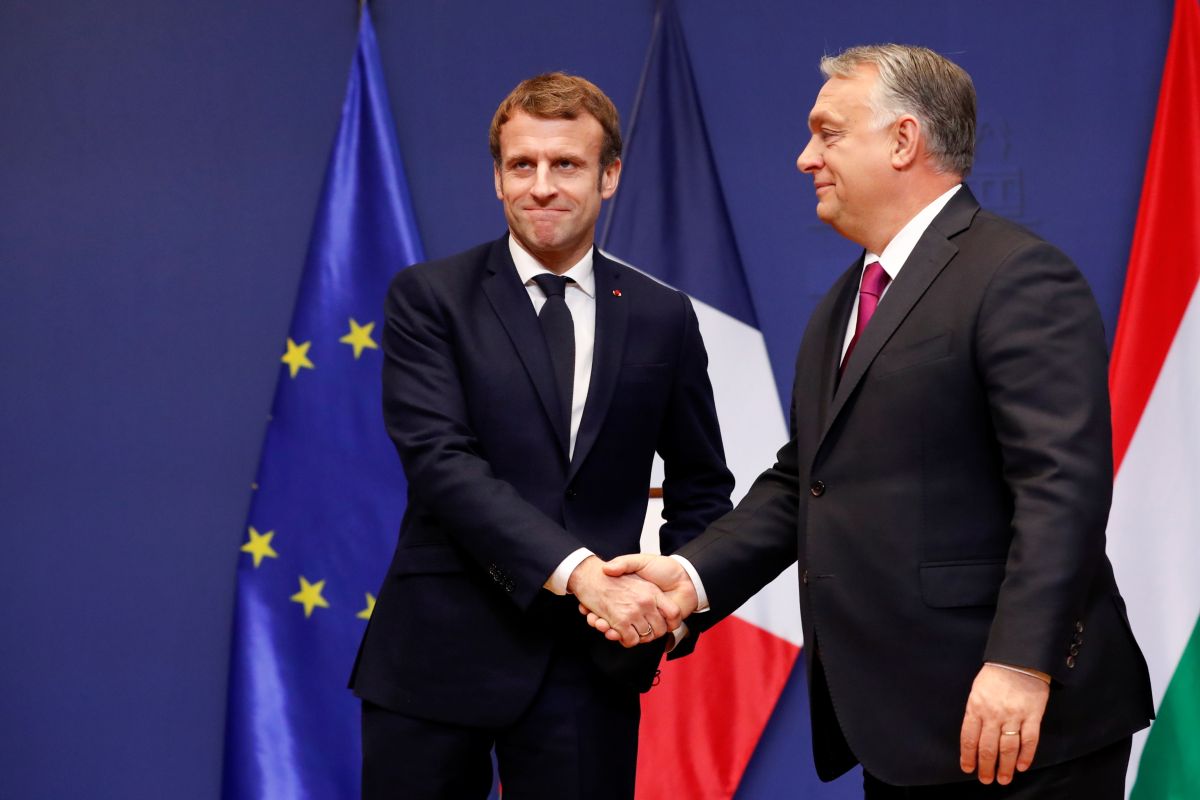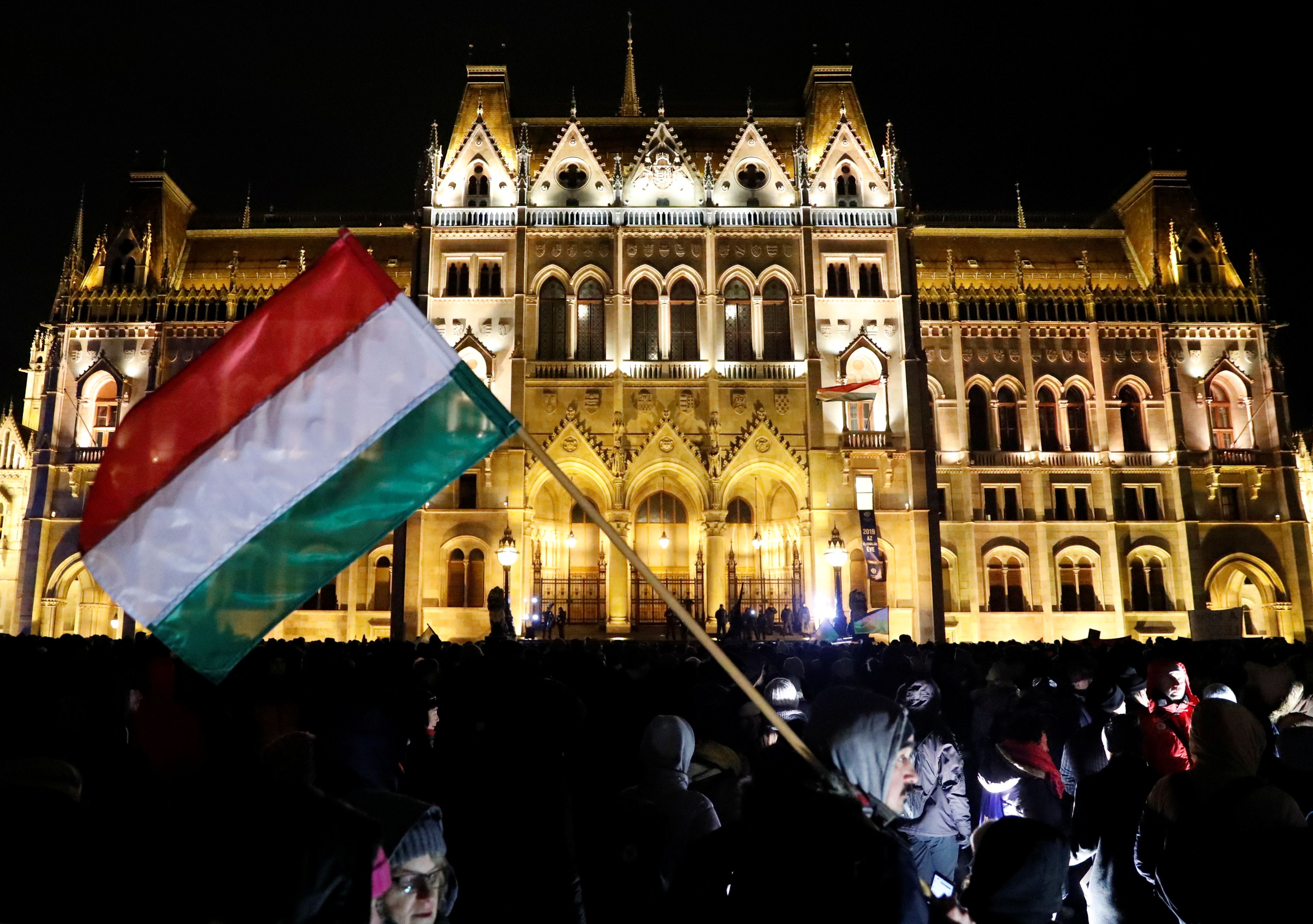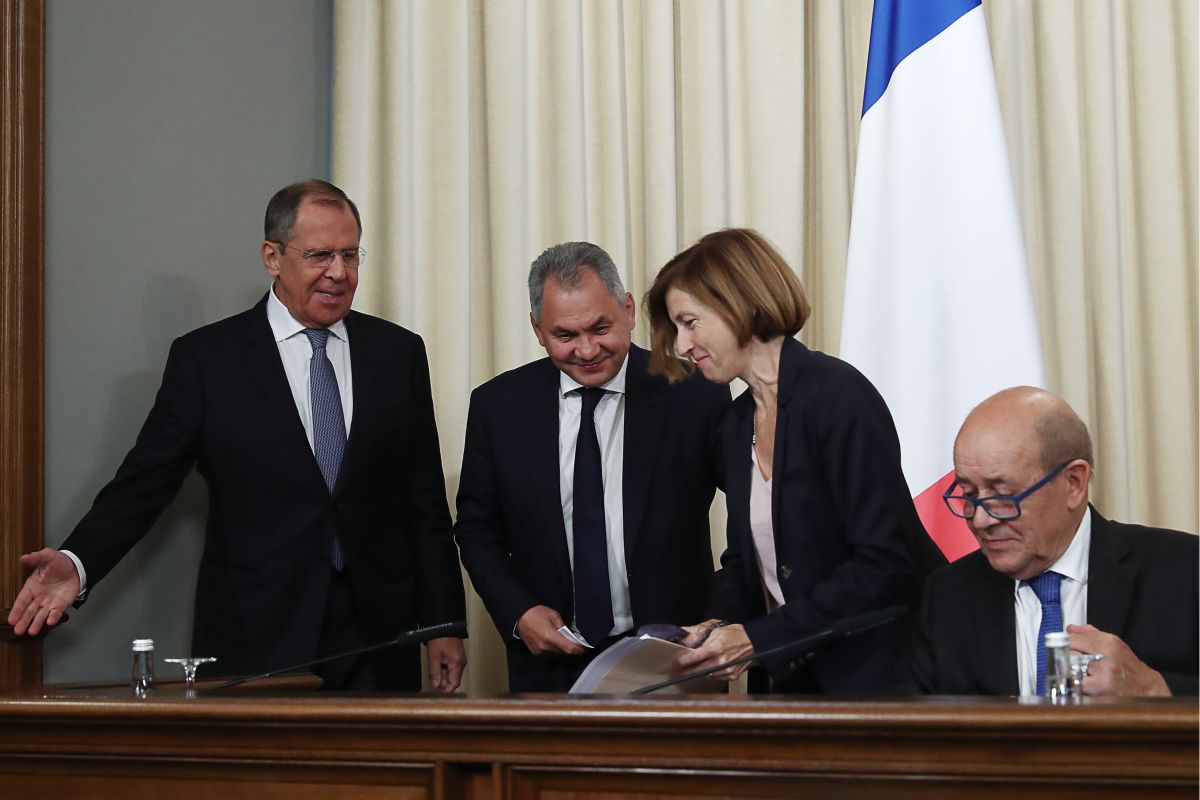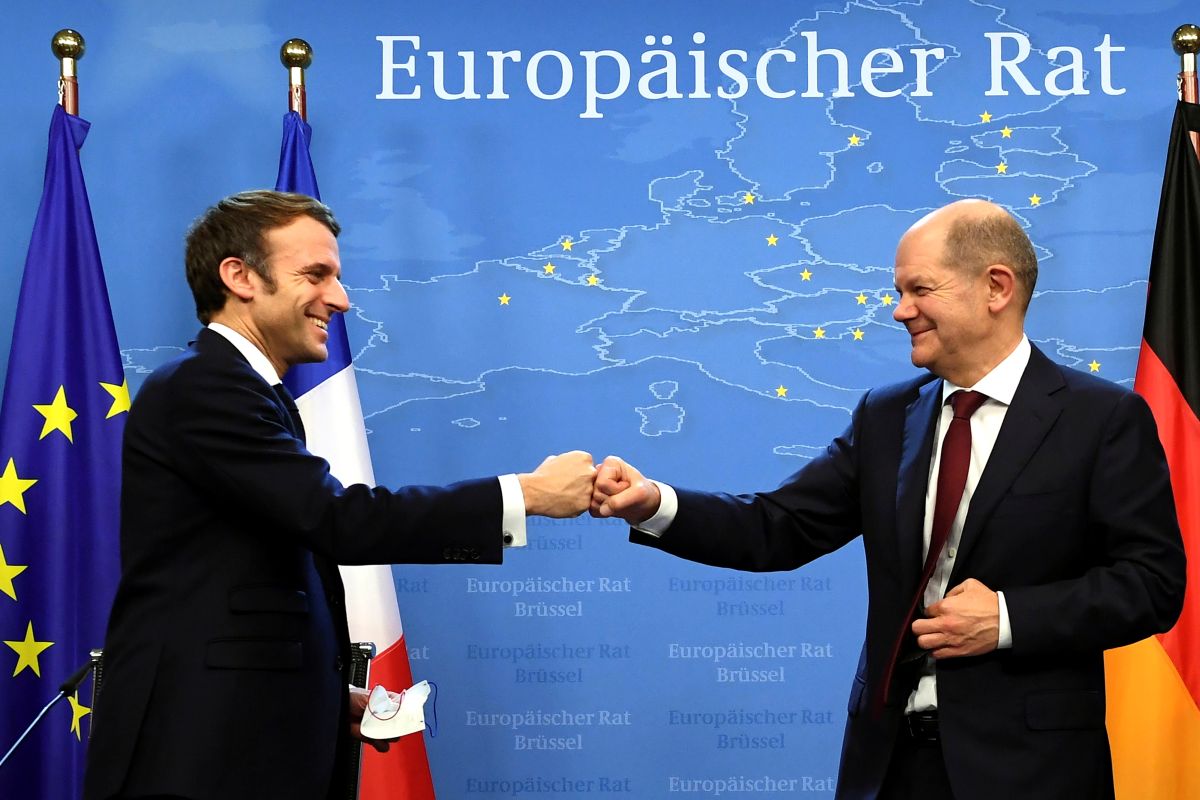Closer to France: Hungary and the EU after Chancellor Angela Merkel
The establishment of a new coalition government in Germany may give rise to greater involvement of the Hungarian government in bilateral relations with France and the French vision of the EU’s development. By working more closely with France, especially in European defence policy, Hungary can counterbalance its weak position in the Union stemming from disputes over the rule of law. At the same time, Hungary can pursue its political goals, such as establishing a new dialogue between the EU and Russia in the current political conditions.
 Fot. Reuters/ BERNADETT SZABO/ FORUM
Fot. Reuters/ BERNADETT SZABO/ FORUM
On 13 December 2021, for the first time in 14 years, the president of France paid a visit to Budapest. After the meeting with Prime Minister Viktor Orbán, Emmanuel Macron spoke in a conciliatory tone about bilateral cooperation, stressing “a loyal partnership in European affairs, despite differences of opinion on some issues”. He also met with representatives of the Hungarian opposition and took part in the V4 leaders’ summit organised by the Hungarian presidency of the group. The visit served the preparations for the French EU Council presidency that began on 1 January. It was also supposed to be an expression of Macron’s openness to Orbán’s policy in the ongoing campaign ahead of the French presidential election. Earlier, the Hungarian prime minister met with two right-wing opponents of the French president, Éric Zemmour and Marine Le Pen. Macron’s gesture of approval extended to Orbán, who implements his policy in an increasingly less propitious European environment.
Unfavourable Conditions
The Hungarian government is facing serious challenges in European politics. First of all, it lost the guarantees of Germany’s conciliatory approach to Hungary’s disputes with the EU institutions when Chancellor Angela Merkel and the CDU/CSU left office. Her efforts to reach a compromise—apart from the EU’s systemic limitations—ensured that Hungary could act freely in domestic politics in the last decade, even despite numerous accusations of breaching EU law, conducting confrontational policy, and high tensions with some of the Member States because of that.
Fidesz’s membership of the European People’s Party together with the CDU/CSU played a similar protective role. Since the Hungarian ruling party was de facto excluded from the largest European political group in March 2021, it has had no formalised political background in the EU. Its MEPs sit in the European Parliament as non-attached members, which significantly reduces their influence. This situation persists because Orbán has failed in creating a new faction of conservatives with the nationalist Identity and Democracy.
The takeover of power in Germany by the SPD-Greens-FDP coalition is not favourable for the Hungarian government. The German government has announced European policy assumptions that are contrary to the Hungarian government’s goals. That is why Orbán expects political confrontations with the new German government, which, for example, called on the European Commission for stronger protection of the rule of law in the EU and set the long-term goal of European integration in the form of a federation.
For these reasons, it is possible that the Commission will use the conditionality mechanism against Hungary in the first half of this year, which may lead to the suspension of payments of some funds from the EU budget. This would be all the more problematic for Hungary as it has not yet received support from the EU’s recovery fund. According to the French presidency agenda, the EU Council meeting on Hungarian violations of the Union’s values will not be held until May, which means that it will not have any impact on the outcome of the Hungarian parliamentary elections on 3 April. However, the lack of payments would be a serious blow to the Hungarian economy as they have accounted for 58% of all Hungarian GDP growth in the last decade. The lack of these funds would be particularly troublesome given the large scale of promised financial transfers ahead of the elections.
Closer to France
Hungary and France have never had as deep political and economic ties as Hungarian-German relations. France’s periodic interest in Central European states has been usually a derivative of French policy towards Germany at a time of major political changes—France sought these states’ support to diminish the German dominance. Today, in the face of European discussions about the desired global position of the EU, reform of the Union, and after Merkel’s departure from politics, France is looking for partners in a region that has been closely tied to Germany. It wants to take over European leadership in setting the direction of EU development.
The Hungarian-French rapprochement became apparent in 2019 and resulted from the convergence of specific interests, despite fundamental differences between the political programmes of Orbán and Macron. Common points included strengthening European strategic autonomy in the military and political dimensions—for Hungary, industrial and defence cooperation with France (and Germany) was given priority over the deepening of its partnership with the U.S. Orbán has referred to the concept of Europe’s independence in international politics from the U.S. and NATO, including in the context of the preferred dialogue in relations with Russia, which is also being sought by France. As a sign of support for French defence initiatives, in the first half of this year 80 Hungarian troops will join the multinational Takuba mission under French command in the Sahel, as France has encouraged its EU partners to participate. In addition, as part of the modernisation of its armed forces, Hungary is buying Airbus helicopters (20 H145 and 16 H225). The company is also building a helicopter parts factory in Gyula, Hungary.
Common interests extend to other EU policy areas—nuclear energy, agriculture, migration, and budgetary discipline. France and Hungary, along with the other V4 states, support EU recognition of nuclear energy as a means of the transition to a green economy. Hungary also echoes the French presidency’s goal of achieving EU sovereignty in agriculture—both countries emphasise the need to maintain funds from the common agricultural policy. In addition, Hungary sees France as a partner that also views Islamist terrorism and irregular migration as the main threats to the EU. Hungary agrees with the French approach to trying to limit migration radically, although the former supposes that by building a fence on its southern border, it has already fulfilled the requirement of solidarity between Member States—emphasised also by Macron—in sharing burdens resulting from migration. Hungary is also on board with France regarding its proposal of loosening and simplifying EU fiscal rules—the Hungarian government foresees a budget deficit of 5.9% against the limit of 3%, and public debt at a level of 80% against the maximum 60% of GDP.
The main difference in policies is the approach to the rule of law. Its cardinal importance for the EU’s functioning is emphasised both by Macron in his presidential campaign and the French presidency programme. In this matter, as well as in the general approach to the functioning of the EU, Orbán is closer to Zemmour and Le Pen, who see him as an important partner in uniting the Eurosceptic right. Together, they accuse the EU institutions of, for example, excessive interference in Member States’ domestic affairs, poor management of migration, and inaction in the face of high energy prices. Another point of disagreement with Macron is greater EU integration in the area of social policy—Hungary rejects, among others, the idea of a European minimum wage.
Conclusions
The political rapprochement between Hungary and France is a pragmatic step. It is neither rooted in history nor based on deep economic and political ties. Macron will not help Orbán ease the dispute over the rule of law, but deepened cooperation with him in some areas is currently the Hungarian government’s only chance to break out of European isolation and join the mainstream thinking in shaping the EU’s future. In turn, Macron needs the Central European countries’ support to implement his ideas for reforming the EU. Moreover, his contacts with Orbán could earn him right-wing votes in the presidential elections.
However, regardless of their outcome, if Fidesz remains in power France may become a more important political partner for Hungary than the German government. Hungary will avoid disputes with Germany, still its most important economic partner, but cannot count on a political partnership due to fundamental policy differences.
Among the topics discussed between Hungary and France, the most advantageous from Poland’s point of view is these countries’ perception of the role of nuclear in the energy transition, as it is different from the German approach. On the other hand, Hungarian involvement in the concept of European strategic autonomy is contrary to Polish interests if it leads to the weakening of NATO through EU defence policy. Therefore, Poland should encourage its V4 partner to participate in European projects that meet the Alliance’s goals.





